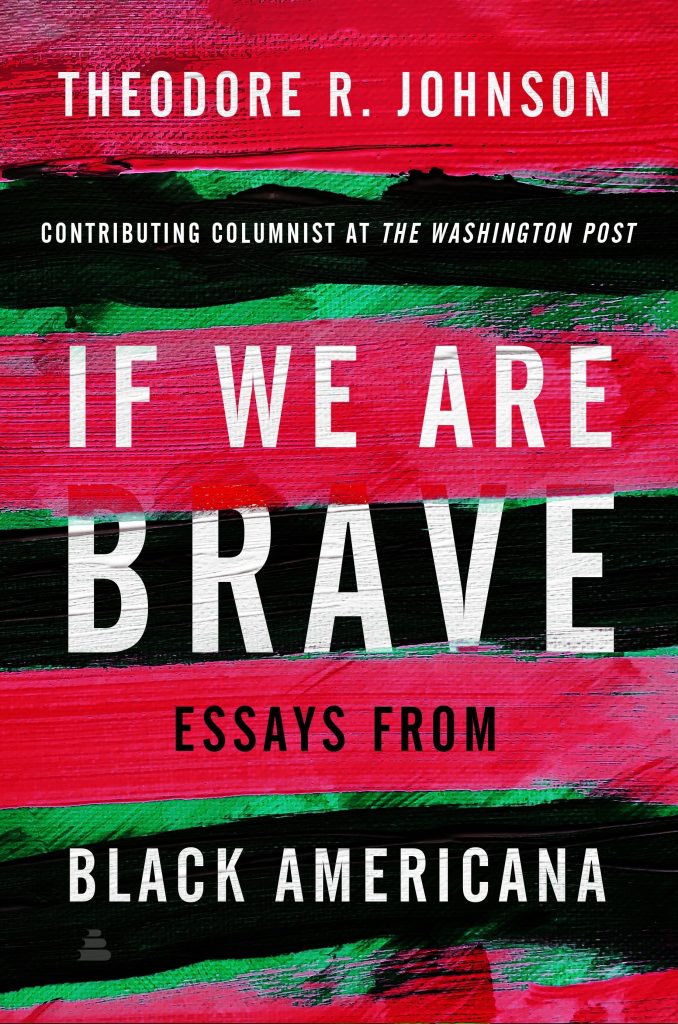What do you think?
You may remember the first time a respected adult asked you in earnest for your opinion, and you felt like you had arrived. Ten feet tall, you were. Suddenly a grown-up with viewpoints and thoughts that mattered. What do you think about sports, fashion, food, school, a new apartment or neighbor? In the new book “If We Are Brave” by Theodore R. Johnson, what do you think about current events?
Every summer for most of his childhood, Theodore Johnson traveled with his family from North Carolina to Georgia to visit relatives. There, Johnson always tried to insert himself in with the menfolk and was usually turned away – until one day, an uncle asked his opinion.
He still remembers it. Listening to your elders, he says, “you learn who your people are.”
And yet, Johnson was a curious child, never wanting to take anyone’s word, preferring instead to make up his own mind. When a church leader at prayer call told him that “God has a special plan for your life,” Johnson was humbled but he knew the prophesy came with baggage.
His thirst for understanding hasn’t diminished since then; in fact, it’s ballooned.
Here, he dives into democracy in America.
Over the past months, you’ve undoubtedly heard about the subject and you noticed that the word seems to have a lot of slippery meanings. Johnson believes that these days, democracy can be used to do undemocratic things and most people hardly blink.
To “save democracy,” we need to question all the things that affect it, and then re-imagine it. We must examine why racism still exists, for example, and how it affected the last five election cycles. We shouldn’t worry about changing democracy because we’re already in the midst of change. We can look at history for proof of that. And we need to very watchful.
Says Johnson, when elected officials use the “instruments of government to divide and polarize” voters and public institutions, they can easily send democracy on a “death spiral.”
It may seem like the kerfuffle over the election has eased some. Whether your candidate won or lost, you’ve had time now to let it settle in. So read “If We Are Brave” and get ready to have everything you thought you knew shook up like a snow globe.
Like the Black churches he writes so lovingly about, author Theodore R. Johnson “don’t play.” Once you’re pilled into one of his stories, you can just as well find a good seat; you won’t want to go anywhere anyhow. Johnson uses tales of his childhood and his classrooms to lead readers into understanding how we got to this point, politically, and how we might’ve seen this last election coming, had we just known where in history to look.
Reading this book is like having a private civics lesson, only way more interesting than it ever was in high school. It’s sense-making, at a time when many things don’t make sense. Start “If We Are Brave” and see what you think.



